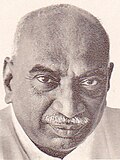 |
|---|
| Party | Votes | % | Seats | +/– |
|---|
| Indian National Congress (R) | 64,033,274 | 43.68 | 352 | +69 |
| Indian National Congress (Organisation) | 15,285,851 | 10.43 | 16 | New |
| Bharatiya Jana Sangh | 10,777,119 | 7.35 | 22 | –13 |
| Communist Party of India (Marxist) | 7,510,089 | 5.12 | 25 | +6 |
| Communist Party of India | 6,933,627 | 4.73 | 23 | 0 |
| Dravida Munnetra Kazhagam | 5,622,758 | 3.84 | 23 | –2 |
| Swatantra Party | 4,497,988 | 3.07 | 8 | –36 |
| Samyukta Socialist Party | 3,555,639 | 2.43 | 3 | –20 |
| Bharatiya Kranti Dal | 3,189,821 | 2.18 | 1 | New |
| Telangana Praja Samithi | 1,873,589 | 1.28 | 10 | New |
| Praja Socialist Party | 1,526,076 | 1.04 | 2 | –11 |
| Shiromani Akali Dal | 1,279,873 | 0.87 | 1 | New |
| Utkal Congress | 1,053,176 | 0.72 | 1 | New |
| All India Forward Bloc | 962,971 | 0.66 | 2 | 0 |
| Peasants and Workers Party of India | 741,535 | 0.51 | 0 | –2 |
| Revolutionary Socialist Party | 724,001 | 0.49 | 3 | New |
| Republican Party of India (Khobragade) | 542,662 | 0.37 | 0 | New |
| Kerala Congress | 542,431 | 0.37 | 3 | +3 |
| Bangla Congress | 518,781 | 0.35 | 1 | –4 |
| Indian Union Muslim League | 416,545 | 0.28 | 2 | 0 |
| Vishal Haryana Party | 352,514 | 0.24 | 1 | New |
| All India Jharkhand Party | 272,563 | 0.19 | 1 | New |
| Shiv Sena | 227,468 | 0.16 | 0 | New |
| Shoshit Dal Bihar | 193,389 | 0.13 | 0 | New |
| Socialist Unity Centre of India | 157,703 | 0.11 | 0 | New |
| Republican Party of India | 153,794 | 0.10 | 1 | 0 |
| Janta Party | 139,091 | 0.09 | 0 | New |
| All Party Hill Leaders Conference | 90,772 | 0.06 | 1 | 0 |
| United Front of Nagaland | 89,514 | 0.06 | 1 | New |
| Hindu Mahasabha | 73,191 | 0.05 | 0 | New |
| Akhil Bharatiya Gorkha League | 72,131 | 0.05 | 0 | New |
| Bihar Prant Hul Jharkhand | 66,669 | 0.05 | 0 | New |
| Hindustani Shoshit Dal | 65,925 | 0.04 | 0 | New |
| Revolutionary Communist Party of India | 65,622 | 0.04 | 0 | New |
| Lok Sewak Sangh | 62,527 | 0.04 | 0 | New |
| Jana Congress | 60,103 | 0.04 | 0 | 0 |
| Nagaland Nationalist Organisation | 58,511 | 0.04 | 0 | –1 |
| United Goans – Seqveria Group | 58,401 | 0.04 | 1 | 0 |
| Socialist Party | 55,064 | 0.04 | 0 | New |
| Maharashtrawadi Gomantak Party | 54,597 | 0.04 | 0 | New |
| Proutist Bloc of India | 43,849 | 0.03 | 0 | New |
| Telangana Congress | 43,548 | 0.03 | 0 | New |
| Minorities Labour Party | 41,198 | 0.03 | 0 | New |
| Indian Socialist Party | 38,713 | 0.03 | 0 | New |
| Muslim Majlis Uttar Pradesh | 36,526 | 0.02 | 0 | New |
| Lok Raj Party Himachal Pradesh | 34,070 | 0.02 | 0 | New |
| Uttar Pradesh Kisan Mazdoor Party | 31,729 | 0.02 | 0 | New |
| Manipur Peoples Party | 31,029 | 0.02 | 0 | New |
| Akhil Bharatiya Ram Rajya Parishad | 24,093 | 0.02 | 0 | New |
| Republican Party of India (Ambedkarite) | 22,428 | 0.02 | 0 | New |
| Backward Classes Mahasabha | 6,929 | 0.00 | 0 | New |
| Revolutionary Socialist Party of India (Marxist–Leninist) | 6,198 | 0.00 | 0 | New |
| Chota Nagpur Bhumi Rakshak Party | 4,982 | 0.00 | 0 | New |
| Independents | 12,279,629 | 8.38 | 14 | –21 |
| Appointed members [a] | | 3 | 0 |
| Total | 146,602,276 | 100.00 | 521 | –2 |
|
| Valid votes | 146,602,276 | 96.74 | |
|---|
| Invalid/blank votes | 4,934,526 | 3.26 | |
|---|
| Total votes | 151,536,802 | 100.00 | |
|---|
| Registered voters/turnout | 274,189,132 | 55.27 | |
|---|
| Source: ECI |





